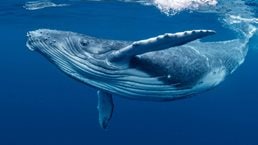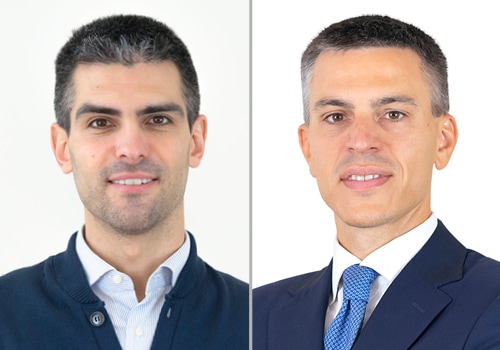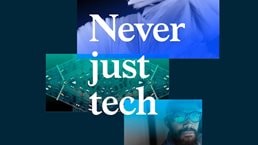One Ocean Foundation leads research projects such as the reseeding of ocean-floor meadows, the acoustic monitoring of marine mammals, and collecting aquatic organisms to track pollutants. But some of their most innovative work is taking place onshore, in data labs and corporate boardrooms.
For each of the last three years, McKinsey’s AI arm, QuantumBlack, has been applying analytics and AI to corporate data to depict exactly how businesses are working to protect the seas, our ‘blue economy.’ This annual profile, created with One Ocean Foundation, fills a critical gap in sustainability reporting: while most companies issue reports focused on land environments, none address what’s happening in our seas.

One Ocean Foundation
One Ocean Foundation, founded in 2017 in Italy, works to safeguard marine environments by inspiring people, especially business and civic leaders, to solve ocean problems such as overfishing, pollution, ever-rising temperatures, and eutrophication—when nutrient accumulation causes microorganism overgrowth. “Our work with McKinsey started with the Business for Ocean Sustainability project. Today this report provides a snap shot of the current status of the impact of industries on the oceans,” explains Jan Hans Georg Pachner, secretary general of the foundation. “We are now working with 54 international oceanographers to identify all of the different pressure points within the ocean environment. Some 80 percent of the issues are from land-based activities so, industries have a key role to play.”

“We are very much in sync with their approach of working with large stakeholders who have the greatest influence in creating change,” says Federico Fumagalli, a McKinsey partner. “They also encourage action through sharing best practices and positive reinforcement.”
Last spring, Federico along with Jacopo Ghidoni, partner with QuantumBlack, led a team of data scientists from QuantumBlack and large language model experts from QuantumBlack Labs. They enlisted generative AI, powered by OpenAI, to analyze the sustainability reports of about 2,500 companies (300,000 pages in total) across 17 sectors, representing more than 70 percent of the world’s market capitalization.

Creating value beyond the hype
“The One Ocean Foundation report was the perfect use case because the information we were analyzing was public,” recalls Federico. “Our systems and protocols were already set up and we were ready to go.”
“In previous years’ analyses, we could see that companies were mentioning ocean sustainability in their reporting, and we knew that there was an ambition. But what actions were they implementing? We couldn’t tell,” explains Federico. “With generative AI, we could develop a chain of thought and link one fact to the next. It’s only possible when you have a human in the loop reading the answers, devising the next set of questions, and the next.”
...what is really powerful is that it could produce answers we never had before.
For example, if a company report mentioned “partnership,” generative AI could extract further details about what the partnership was achieving, such as “preserving local mangroves,” and pinpoint the exact page and mention in the report for further follow-up. “It’s important to make sure you have enough time for validation. We spent about three quarters of our project time validating our answers, creating layers of questioning so that apart from having this much richer and more meaningful answer to the question, we are certain that it’s proven,” says Jacopo. “It goes to the principles of responsible AI.”
It’s also critical to think big. “We knew that gen AI could automate a daunting analysis; in our case, it reduced the production time by about 90 percent,” says Jacopo. “But what is really powerful is that it could produce answers we never had before.”
Previously the team believed that the use of eco design was limited primarily to the textile industry. But through generative AI, they discovered that it was more widespread—food and other sectors also had been developing ocean-sustainable packaging, with evidence of clear examples.
Overall, there is a significant opportunity for companies to start developing blue businesses—15 percent in the sample say they are focused on this—and the report outlines more than 20 business projects, technologies, and enablers to help. These range from wastewater treatments to coastal engineering to marine ecotourism—initiatives that can create value, reduce costs, and generate new revenue.
The report recently received a Responsible Business Education award from the Financial Times for academic research with societal impact.
With help from McKinsey and QuantumBlack, One Ocean Foundation will evolve this year’s report into an Ocean Disclosure Initiative, a framework that businesses can use to track their marine-related projects. It could be thought of as the next wave in sustainability reporting.
Our work with One Ocean Foundation is an example of our ‘AI for good’ projects. We have open sourced several of the tech components used in this project to support other individuals and organizations exploring how to use AI to improve the world we live in. The open-source collection can be found on GitHub.